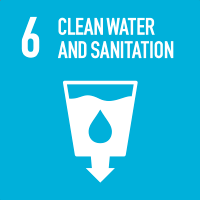Studying at the University of Verona
Here you can find information on the organisational aspects of the Programme, lecture timetables, learning activities and useful contact details for your time at the University, from enrolment to graduation.
Study Plan
The Study Plan includes all modules, teaching and learning activities that each student will need to undertake during their time at the University.
Please select your Study Plan based on your enrollment year.
1° Year
| Modules | Credits | TAF | SSD |
|---|
2° Year activated in the A.Y. 2024/2025
| Modules | Credits | TAF | SSD |
|---|
3° Year It will be activated in the A.Y. 2025/2026
| Modules | Credits | TAF | SSD |
|---|
| Modules | Credits | TAF | SSD |
|---|
| Modules | Credits | TAF | SSD |
|---|
| Modules | Credits | TAF | SSD |
|---|
Legend | Type of training activity (TTA)
TAF (Type of Educational Activity) All courses and activities are classified into different types of educational activities, indicated by a letter.
Engineering and prevention for health and safety in public areas - Environmental and industrial physics (2024/2025)
Teaching code
4S000463
Teacher
Credits
2
Language
Italian
Scientific Disciplinary Sector (SSD)
ING-IND/11 - BUILDING PHYSICS AND BUILDING ENERGY SYSTEMS
Period
2 SEMESTRE PROFESSIONI SANITARIE dal Jan 7, 2025 al Sep 30, 2025.
Location
TRENTO
Courses Single
Not Authorized
Program
Fundamental thermodynamic quantities: internal energy of a system, enthalpy and mass and energy balances; vapour pressure, relative humidity and specific humidity of a humid air flow. Fundamental elements of heat transfer: heat exchange by convection and radiation; effective temperature and perceived temperature.
Fundamental elements of mass exchange: expression of concentration and molar quantities, mass flow and interaction between mass flow and energy; evaporative flows. Parameters that define thermo-hygrometric well-being: temperature, air velocity, and air quality. Evaluation of the main physical and psycho-physical quantities in the acoustic field aimed at controlling the conditions of noise pollution in the environments.
Bibliography
Didactic methods
The module will take place by integrating both explanation on the blackboard and texts and documents appropriately prepared by the teacher that will be projected during the course and appropriately explained / commented. This will be followed, as an integral part, by a series of numerical elaborations aimed at better understanding the concepts introduced and analyzing some practical cases related to the operational areas where students will operate.
Learning assessment procedures
The exam of the course of "Ingegneria e Scienza della Prevenzione per la Tutela della Salute negli Ambienti di vita" is considered passed and can therefore be recorded when the student has passed all 4 modules that make up the course. The vote will be expressed by a single vote obtained from the average of the marks obtained in the individual modules.
In each module the student must obtain an evaluation (greater or equal) than 18/30, under penalty of repetition of the module(s) in subsequent sessions. obtained in the individual modules.
Looking at the exam of Environmental and Industrial Technical Physics, it consists of a written test that includes the numerical solution of some exercises similar to those proposed during the course and, in relation to environmental issues, a description of some proposed themes. The proposed test aims to evaluate the theoretical knowledge proposed during the course and to evaluate its application on real cases. The student must also demonstrate to have a significant knowledge of the issues related to the types of pollutants and their control in the workplace.
Evaluation criteria
The Environmental and Industrial Technical Physics exam t consists of a written test which includes the numerical solution of some exercises similar to those proposed. The mark will be expressed by a single mark (out of thirty) obtained from the average of the marks obtained in the individual modules. In each module the student must obtain a score ≥ (greater than or equal to) 18/30, under penalty of repetition of the module / s in subsequent sessions. during the course and, in relation to environmental issues, a description of some of the proposed themes.
Exam language
Italiano


